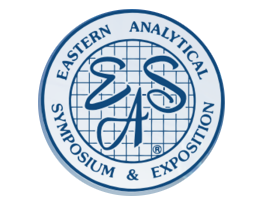One-Day Course
Dr. Gregory Sluggett, Pfizer, Groton, CT
Mr. Todd Zelesky, Pfizer, Groton, CT
Dr. Shane Eisenbeis, Pfizer, Groton, CT
COURSE DESCRIPTION
This workshop is designed to provide participants with an in depth of knowledge of the chemical reactions involved in the most common degradation pathways of drugs. The Chemistry of Drug Degradation: This topic will be covered by carefully examining the decomposition of pharmaceuticals by functional groups according to common degradation pathways. These include hydrolysis/dehydration, oxidation, isomerization/ epimerization, decarboxylation, dimerization/ polymerization, cyclization, rearrangements, photolysis, and transformation products involving reaction with excipients or counterions (salt forms). Real world examples will be given to illustrate many of the degradation mechanisms, including:
1) Identifying critical molecular structures
2) Which structures are likely to react?
3) Predicting the likely degradation products
4) Interactive problem solving session
5) Developing degradation mechanisms
6) Relating the chemistry to ICH guidelines
WHO SHOULD ATTEND
This one-day course will benefit analysts and formulators who develop methods and formulations, perform forced degradation and structure elucidation of impurities and degradants of pharmaceutical products. To get the most out of the course, we highly recommended that you have at least two years of pharmaceutical analysis or drug development experience.
TOPICS
1. Introductions
2. General Considerations
3. Basic Organic Chemistry Concepts
4. Stress Testing Guidance
5. Main Degradation Pathways
6. Using stress testing conditions for sample enrichment/isolation and examples
7. Functional groups, drug-excipient reactions, and examples
8. Degradation Prediction
ABOUT THE INSTRUCTORS
Dr. Gregory Sluggett received his Ph.D. in Organic Chemistry from McMaster University in Hamilton, Canada. His thesis work with Professor William Leigh involved organic photochemistry and the chemistry of reactive organosilicon intermediates. Dr. Sluggett did a post-doctoral fellowship at Columbia University in New York City with Professor Nicholas Turro. While at Columbia, he studied the chemistry of reactive radical cations and phosphorus-centered free radicals by time-resolved spectroscopic techniques. Greg began his pharmaceutical career at Merck/Merial in animal health product development. Dr. Sluggett is currently an Associate Research Fellow in Analytical R&D at Pfizer Inc. in Groton, CT. He has been involved in many different aspects of drug development from discovery support through product launch. His interests include product stability, forced degradation and impurities.
Mr. Todd Zelesky is a Senior Scientist in Analytical R&D at Pfizer Inc. in Groton, CT. He received his undergraduate degree in Chemistry at the University of Connecticut in 2000. Mr. Zelesky currently works in the Structure Elucidation Group within the development organization. Over the past ten years he has been responsible for the isolation and enrichment of drug related impurities and degradants, for structure ID purposes, from all stages of the development process. His most recent role includes providing drug degradation support across Analytical R&D.
Dr. Shane Eisenbeis received his BS from Eastern Illinois University in 1990 where he worked under Prof. Howard Black understanding the reactivity of b-lactones. Shane then went on to earn his PhD in 1994 with Prof. Phil Magnus at the University of Texas in Austin working on the total synthesis of Dynemicin A, a cytotoxic ene-diyne. Dr. Eisenbeis is currently an Associate Research Fellow in Chemical R&D at Pfizer Inc. and is involved in the development of API supporting studies ranging from exploratory toxicology through P2b. Some of Shane’s more recent efforts have focused on breakthrough treatments for Parkinson’s and Alzheimer’s.

